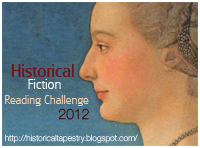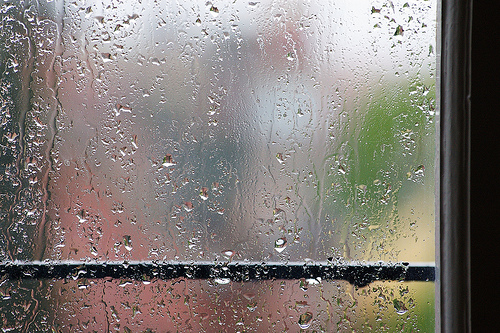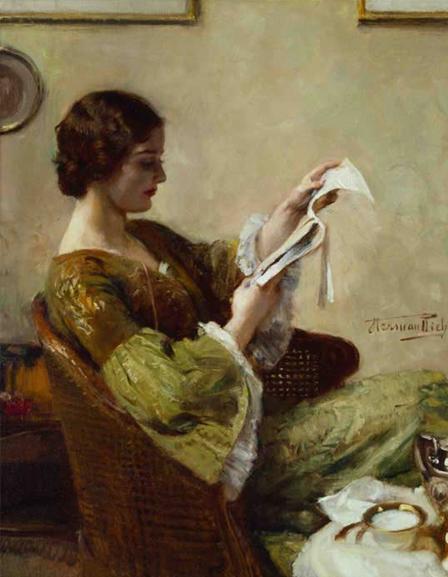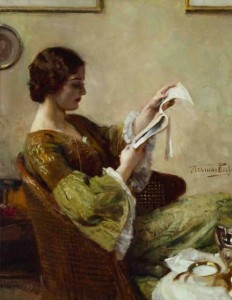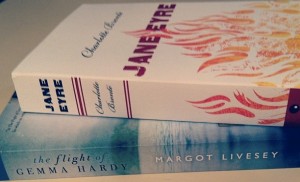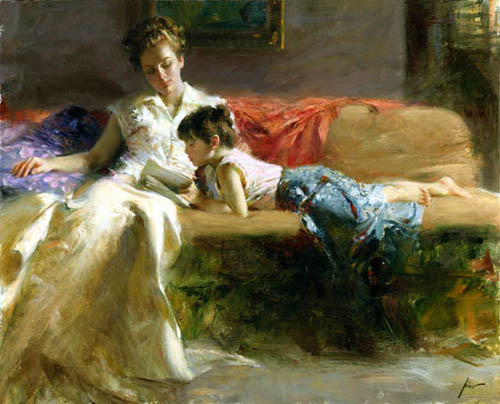[amazon_image id=”B0006BD9BK” link=”true” target=”_blank” size=”medium” class=”alignleft”]A Northern Light[/amazon_image]Jennifer Donnelly’s YA novel [amazon_link id=”B0006BD9BK” target=”_blank” ]A Northern Light[/amazon_link] is based, in part, on the same crime that inspired Theodore Dreiser to write [amazon_link id=”0451531558″ target=”_blank” ]An American Tragedy[/amazon_link]: Chester Gillette’s murder of Grace Brown in the Adirondacks in 1906. The novel’s protagonist, Mattie Gokey, is the teenage daughter of a poor farmer in the North Woods. Mattie’s mother died not too long before the events in the book start. Before she dies, Mattie’s mother extracts a promise from Mattie that she will stay to help take care of her siblings. Mattie’s older brother Lawton left home after a fight with their father, and Mattie is responsible for her three younger sisters. Mattie, however, dreams of going to college. Her teacher, Miss Wilcox, encourages Mattie, who she believes has a gift for writing. Mattie’s friend Weaver Smith has dreams of attending Columbia University, and Miss Wilcox encourages both of them. They both take jobs at the Glenmore Inn, where Grace Brown and Chester Gillette come to stay. Before Grace is murdered, she entrusts Mattie with her letters and asks Mattie to burn them. After Grace’s body is found and Mattie finds herself unable to dispose of the letters as Grace asked, she reads them instead, and she uncovers a motive for Gillette’s murder of Grace as well as motivation to follow her own dreams.
Jennifer Donnelly’s books are all good. This particular novel’s narrative flashes backward and forward in time, but the plot is not difficult to follow, and in the end, Donnelly’s reasons for telling the story in this less linear fashion are clear. Mattie is an engaging heroine, representative of so many girls of her age who were expected to marry, often without love, and raise a family. Weaver is an interesting character too. His father was killed in a racial hate crime, but rather than making Weaver fearful of whites, it instead empowered him to stand up for himself when he encounters racism. Like Mattie, the reader can have no doubt that Weaver will go to Columbia and become a fine lawyer despite the odds. Donnelly’s setting is vividly painted for the reader, both in time and place—which is a particular gift of Donnelly’s and something I have enjoyed about all of her books.
I would recommend this book even to readers who aren’t necessarily fans of YA, mainly because I think readers will enjoy learning about this time and place and will like Mattie and her friends and family (except, of course, for those we aren’t supposed to like). Grace Brown’s murder is more or less incidental to the plot, as the main story is Mattie’s coming of age.
Rating:




I thought about counting this book as a crime/mystery book as part of the Mixing it Up Challenge, but I ultimately decided not to because the crime is not the center of the novel.
Full disclosure: I obtained this book via PaperBackSwap.
